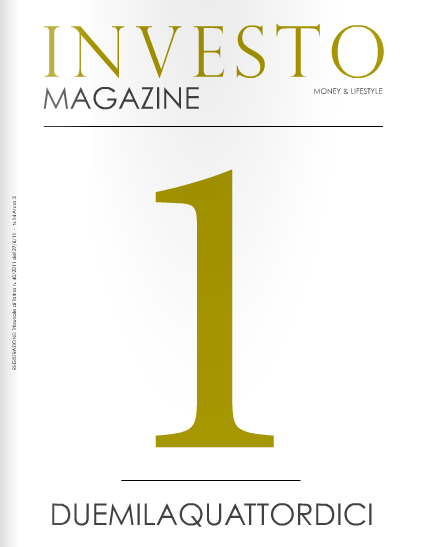Viviamo in un mondo che si potrebbe definire per certi versi ammalato di “sviluppismo”. Tendiamo a pensare che la sorte, il destino, ma anche la felicità degli individui e della collettività possa esse misurata in termini di reddito o nel prodotto interno lordo. In buona sostanza quanto più un individuo produce, consuma e accumula o quanto più un popolo accumula denaro e produce, tanto più sarà realizzato e felice. È un’equazione su cui si basa buona parte della modernità, in tutte le sue varianti. In qualche caso prevale chi sostiene il valore dei beni ponderali come quelli dell’industria e dell’agricoltura e in generale dei consumi materici. In qualche altro caso si tende a pensare che l’unico vero denaro è quello per produrre altro denaro come nel mondo della finanza, più o meno fantasiosa e creativa. A ogni buon conto l’immagine che ci formiamo della storia è quella di una semiretta lineare in cui si parte dal sottosviluppo e dalla miseria per arrivare, sull’onda di quella parola magica che chiamiamo tasso di crescita, verso condizioni progressivamente migliori per tutti ma soprattutto per qualcuno.
Due paesi, uno appeso tra Europa e Asia e l’altro nel continente latino americano, sono apparsi nell’ultimo decennio in un clima di crescita effervescente. Si stratta della Turchia e del Brasile. Due paesi molto diversi tra loro accomunati dal fatto che un tasso di crescita vivacissimo, attestato a numeri quasi di due cifre, ha prodotto negli ultimi anni cambiamenti radicali nella vita della maggioranza della popolazione, facendo diventare Istanbul e Rio de Janeiro, due città mitiche di un modello di crescita molto lontano dalla dimensione depressiva, sonnacchiosa e stantia delle vecchie capitali europee. Sorprendentemente vediamo nell’uno e nell’altro paese scendere in piazza folle irose che protestano violentemente contro una realtà che appare inspiegabilmente deludente e inaccettabile. È forse soltanto un problema legato alla indiscutibile presenza di ingiustizia sociale? È forse solo una richiesta, come in Turchia, di maggiore libertà e, in Brasile, di maggiore giustizia per i poveri? Oppure è l’indicatore che non è il prodotto interno lordo l’unica unità di misura di ciò che forma gli orizzonti di senso umano nell’individuale e nel collettivo? Qualche sociologo, alquanto fantasioso, ha accostato al PIL il coefficiente di felicità. Il problema è che la felicità è difficilmente misurabile in termini sociologici.
La crisi del modello di sviluppo ha radici simili a quelle del resto d’Europa, aggravata in Italia dal peso di un debito pubblico difficilmente sostenibile e in larga parte ereditato negli anni della prima Repubblica. Questo deficit è andato costruendosi negli anni a partire da due fattori. Il primo è sicuramente legato al costo finanziario che lo Stato deve pagare in forma di interessi a tutti coloro che ne sottoscrivono i titoli pubblici. Si tratta, in verità, di investitori italiani e, soprattutto in passato, ha deposto per una situazione apparentemente più sana di quella dell’Argentina di qualche anno fa in cui il debito pubblico era soprattutto estero.
Sull’onda di questo principio qualcuno è arrivato a proporre l’idea per la quale gli Italiani con uno sforzo nazionale alla “fedi donate alla patria” di bellica memoria possano ricomporre il debito e sanare così una situazione perennemente esposta alle tempeste degli spread. L’altra fonte del debito è sicuramente la forte spesa pubblica che secondo un modello profondamente statalista e assistenzialista dei costumi è stata creata a partire negli ultimi trent’anni di storia della Repubblica. In questi costi ci sono spese francamente malate come quelle legate alla corruzione, agli eccessi dei costi della politica. Mentre nessuno ha dubbi quando si tratta di compiere una spending review che colpisca i vizi del ladrocinio o false pensioni di invalidità, quando si tratta di aggredire la spesa del welfare allora sono dolori.
Come si può dimenticare che anche i tentativi più virtuosi per produrre risparmio, accorpando ad esempio le province, collidono con il fatto che, essendo la spesa fatta per larga parte di stipendi, i risparmi tendono a risultare irrilevanti visto che nessun dipendente pubblico può essere licenziato? Così come per i costi della sanità che sono per la maggior parte costituiti da stipendi in cui i tagli si traducono forse in qualche risparmio e razionalizzazione ma anche in posti di lavoro. Come tagliare quindi quella spesa pubblica, tenendo conto che senza questo bisturi la risposta non può venire che da un continuo aumento del carico fiscale? È una sfida epocale e difficile.
L’idea che si possa delegare allo Stato la risposta ad ogni necessità pubblico-privata ha finito con il creare nel nostro tempo l’idea di de-responsabilizzazione. Oggi si pensa che la giustizia viene prima della carità e che raccogliere un barbone sia compito della croce rossa e dell’Asl di appartenenza. Peccato che i costi di questa dilatazione iper burocratica di uno stato assistenziale, pervasivo e diffuso abbiano anestetizzano le coscienze per l’aiuto ma anche dilatato abnormemente i costi di ogni intervento d’aiuto a carico di un welfare state onnicomprensivo e gonfio. Nel tempo delle vacche magre occorre riprendere a ragionare su questa sfida anche perché, insieme al diritto indiscutibile di essere aiutati, nella nuova welfare community sempre più la responsabilizzazione, la libertà di iniziativa, dovranno integrarsi in forme nuove i bisogni ma anche i meriti di chi in un atto di libero amore, come spesso è avvenuto nella storia, compirà quello che uno Stato presunto onnipotente non è più in grado di garantire a tutti e per sempre.We live in a world affected, in some extent, by “developmental state”. We tend to think that faith, destiny but also individual and social happiness could be measured by the income or by the gross domestic product. Basically, the more a person produces, consumes and accumulates or the more people accumulate money and produce, the more they will be fulfilled and happy. Much of modernity, in all its models, is based on this equation. In some cases some people support the importance of weighted assets, as in manufacturing and in agriculture and for consumption in general. In some other cases though, we tend to think that the only and true wealth is produced by other wealth, just like in finance, whether imaginative and creative. However, the image we have of history is a linear ray: it starts from underdevelopment and poverty and it ends up, on the wave of the growth rate, towards progressively better conditions for everyone but especially for someone.
Two countries, one hanging between Europe and Asia and the other one in Latin America, have seemed to live in the last decade, in an a climate of exuberant growth. We are talking about Turkey and Brazil. These two different countries share a two-digit brisk growth rate, that has introduces in recent years, a radical change in the lives of the majority of the population. Therefore, Istanbul and Rio de Janeiro have became legendary cities representing a model of growth very far from the depressing, sleepy and stale nature of old European capitals. Surprisingly we see in the streets of both countries furious crowds protesting with violence against a reality that seems inexplicably disappointing and unacceptable. Is it just a matter of social injustice? Is it just a demand, in Turkey, for more freedom and, in Brazil, for more justice for the poor? Or maybe, does this mean that the GDP is not a measure for shaping the future of individuals and societies? Some very imaginative sociologists have associated the GDP with happiness. The problem is that happiness is hardly measurable in social terms.
The crisis in the development model has roots similar to those of the rest of Europe, but it is worse in Italy because of the unbearable sovereign debt, part of which has been inherited from the first Republic. Two are the causes of this debt. The first cause is the financial expense the State has to pay in form of interests to those who bought government bonds. Because we are talking of Italian investors, especially in the past, the situations seemed a little bit healthier than the one in Argentina a few years ago where the public debit was primarily foreign.
In the wake of this principles, someone has proposed the idea that Italians, with a national effort that reminds us the “wedding rings donated to the country” duty in time of war, could settle the debt and restore a situation that is constantly exposed to spread storms. The second cause of debt is definitely the strong public spending which, according to a Stalinist and welfarist approach of customs, has been created from the last thirty years of the history of the Republic. Among the costs some really unhealthy ones, like the ones linked to corruption and excess costs from politics. While nobody has doubts in implementing a spending review on thievery bad habits or false disability pensions, but when it comes to tackle welfare spending, there’ll be trouble.
How can we forget that even the most virtuous attempts to produce savings, for example by combining the provinces, collides with the fact that, being the expense made up largely of salaries, savings tend to be irrelevant as no public employee can be fired? As well as the costs of health care that consist from the most part of salaries, which cuts turn perhaps into some savings and rationalization but also in jobs. How to cut then public spending taking into account that, without these cuts, the answer is the constant increasing of public expense? It is and historic and hard challenge.
The idea that the State is able to answer to all public and private needs has led, in our times, to a de-empowerment. Today we think that justice comes before charity and that only the Red Cross or the Local Health Authority Care can help a homeless. Unfortunately the costs of this huge bureaucratic expansion of a welfare, permeating and wide spreading State have probably anaesthetized consciences as far as charity is concerned, but they have also abnormally enlarged the cost of each aid coming from a all-embracing and swollen welfare state. In times of plenty we have to rethink about this challenge because, together with the indisputable right to be aided, in the new welfare community in the sense of responsibility and freedom of initiative will have to be integrated more and more new needs and credits of those who, in a act of free love, as it has often happened in history, will accomplish what the supposed all-powerful State is no longer able to guarantee to all and forever
» 2014, 2014 – Numero 2, Psico Investo » Il PIL fa la felicitàThe GDP...






 youhost
youhost